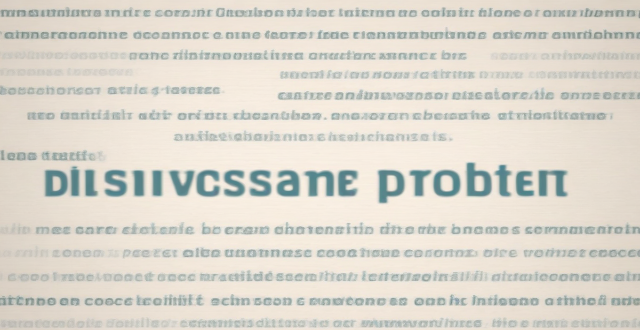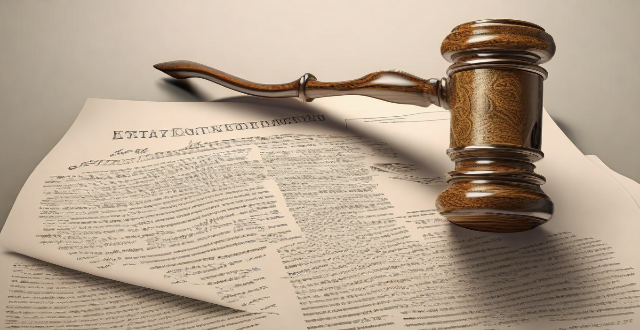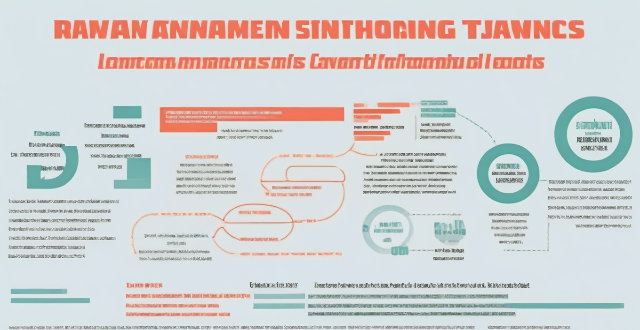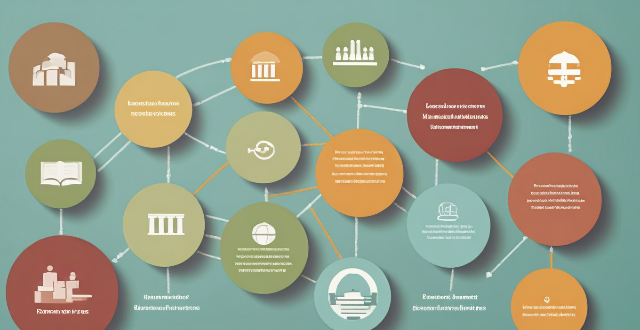Assets Legal

How can I protect my assets from creditors or lawsuits ?
When it comes to protecting your assets from creditors or lawsuits, there are several strategies you can consider. These strategies aim to safeguard your wealth and ensure that you have financial security in case of legal actions against you. Here are some key steps to take: ### 1. **Create a Trust** A trust is a legal entity that allows you to transfer assets into it for the benefit of a third party, known as the beneficiary. By placing your assets into a trust, they are no longer directly owned by you, making them less vulnerable to creditors or lawsuits. There are different types of trusts, such as: - Revocable Living Trust: You can modify or revoke this type of trust during your lifetime. - Irrevocable Trust: Once created, you cannot change or cancel this type of trust. - Special Needs Trust: Designed for individuals with special needs, this trust helps them qualify for government benefits while still having access to funds for other expenses. ### 2. **Establish Limited Liability Entities** Forming limited liability companies (LLCs) or corporations can help protect your personal assets from business-related debts and lawsuits. These entities act as separate legal entities, meaning that their liabilities do not extend to your personal finances. Examples include: - Single Member LLC: Suitable for sole proprietors looking to limit their personal liability. - Multi-Member LLC: Ideal for partnerships where multiple members contribute to the business. - S Corporation: Offers pass-through taxation and limits shareholder liability to their investment in the company. ### 3. **Purchase Insurance** Having adequate insurance coverage is essential in protecting your assets from unexpected events. Make sure you have the following types of insurance policies: - Liability Insurance: Covers damages or injuries caused by you or your property. - Umbrella Policy: Provides additional liability coverage beyond your standard policies. - Homeowner's Insurance: Protects your home and belongings from damage or loss due to various perils. - Auto Insurance: Covers damages and injuries related to vehicle accidents. ### 4. **Diversify Your Assets** Spreading your wealth across different asset classes can help minimize the impact of any single lawsuit or creditor claim. Consider investing in: - Real Estate Investment Trusts (REITs): Allows you to invest in real estate without owning physical property. - Stocks and Bonds: Diversify your portfolio with various securities to reduce risk. - Precious Metals and Cryptocurrencies: Non-traditional assets that may offer protection against market volatility. ### 5. **Consult with Professionals** Before implementing any asset protection strategy, it's crucial to consult with professionals who specialize in this area, such as attorneys, financial advisors, and accountants. They can guide you through the process, ensuring that you comply with all legal requirements and maximize the effectiveness of your chosen strategies.

What is the process for distributing assets after someone dies ?
The process for distributing assets after someone dies is known as probate. It involves filing the will, notifying beneficiaries and heirs, inventorying assets, paying off debts and taxes, and then distributing the remaining assets according to the terms of the will or state law if there is no will. The executor or administrator is responsible for managing the deceased person's estate and all potential beneficiaries and heirs must be notified of their rights and responsibilities.

What documents are typically included in an estate plan ?
An estate plan is a collection of legal documents that outline how an individual's assets and property will be distributed after their death. These documents can include various types of legal instruments, each serving a specific purpose in the estate planning process. Here are some of the most common documents included in an estate plan: - Last Will and Testament: A legal document that states how a person's property and assets will be distributed after their death. - Durable Power of Attorney: A legal document that grants authority to another individual (agent) to act on behalf of the principal in financial matters. - Healthcare Power of Attorney: A legal document that designates someone to make healthcare decisions on behalf of the principal if they are unable to do so. - Living Will: A document that provides instructions about your wishes for medical treatment and end-of-life care. - Trusts: A legal entity that holds and manages assets for the benefit of one or more individuals (beneficiaries). - Beneficiary Designations: The process of naming who receives the proceeds of a bank account, retirement account, or life insurance policy upon the account holder's death. - Letter of Intent: A non-legal document that provides additional information about personal wishes, sentimental items, and instructions for final arrangements.

Do I need a lawyer to create an estate plan ?
Estate planning is important for ensuring that your assets are distributed according to your wishes after you pass away. While it is possible to create an estate plan without a lawyer, working with a legal professional can provide numerous benefits such as legal expertise, customized plans, and peace of mind. However, if you have a simple estate with few assets and no complicated family dynamics, creating a basic estate plan using online tools or templates may be sufficient. It is still important to consult with a lawyer to ensure that your plan meets all legal requirements and addresses any potential issues.

How do I ensure that my digital assets are handled after my death ?
Managing digital assets after death requires careful planning and regular updates to keep pace with technological changes. This guide outlines steps to take to ensure your online presence is handled according to your wishes, including inventorying assets, choosing a digital executor, including assets in your will, using digital legacy services, setting up access and instructions, and reviewing and updating plans regularly. By following these steps, you can protect your online legacy and provide clarity for your loved ones.

What is the difference between a will and a trust ?
The text discusses the differences between wills and trusts in estate planning, highlighting key areas where they diverge. A will is a legal document outlining distribution wishes for assets after death, requiring witnesses and taking effect posthumously. It allows control over assets during one's lifetime and goes through probate, a public process. Wills are flexible and generally less costly to create but offer no tax benefits. Conversely, a trust involves transferring property to a trustee for beneficiaries, with creation and effectiveness varying. Trusts can avoid probate, offering privacy and potential tax benefits but at a higher initial cost and less flexibility, especially if irrevocable. Choosing between them depends on individual needs and preferences.

How do I create a comprehensive estate plan ?
Creating a comprehensive estate plan is essential to ensure your assets are distributed according to your wishes after you pass away. Here are some steps to help you create a comprehensive estate plan: 1. Determine your goals and objectives, such as who you want to inherit your assets and how you want them distributed. 2. Gather information about all your assets, including real estate, bank accounts, investments, life insurance policies, and personal property. 3. Choose beneficiaries for your assets, including individuals, charities, or trusts. 4. Consider tax implications, such as federal and state estate taxes, gift taxes, and generation-skipping transfer taxes. 5. Create legal documents such as a will, power of attorney, healthcare proxy, and living will to ensure your wishes are carried out in case of incapacity or death. 6. Set up trusts to manage your assets during your lifetime and distribute them after your death. 7. Review and update your plan regularly to ensure it remains current with changes in your life. Working with a qualified professional can help ensure that your estate plan meets your needs and achieves your desired outcomes.

What is probate, and how can I avoid it ?
This text discusses probate, the legal process of transferring a deceased person's assets to their heirs or beneficiaries. It explains why many choose to avoid probate, which can be time-consuming and costly, and outlines various methods for doing so, such as creating a revocable living trust, joint tenancy with right of survivorship, pay-on-death accounts, transfer-on-death designations, gifting assets during one's lifetime, designating beneficiaries on retirement accounts and life insurance policies, using a will with a probate avoidance clause, and considering state-specific strategies. The text emphasizes the importance of careful planning and consulting professionals to ensure assets are distributed according to one's wishes without court interference.

What are the legal implications of using smart contracts ?
Smart contracts, self-executing contracts with terms written in code on a blockchain, raise legal questions about enforceability, jurisdiction, privacy, security, and regulatory compliance. Best practices include consulting a legal expert, clearly defining terms, considering jurisdiction, and prioritizing privacy and security.

Can I make changes to my estate plan without a lawyer ?
Making changes to an estate plan without a lawyer is possible but risky, as it can invalidate the plan or lead to unintended consequences. Simple updates like changing a beneficiary or using online will services might be manageable without legal help. However, understanding legal requirements, document formalities, and potential risks are crucial. Periodic reviews and seeking professional advice for complex situations or peace of mind are recommended.

How do women entrepreneurs navigate the legal aspects of starting a business ?
Starting a business as a female entrepreneur involves navigating various legal considerations. This guide offers strategies for handling these aspects, including understanding legal frameworks, protecting intellectual property through trademarks and copyrights, drafting contracts, complying with employment laws, ensuring financial compliance, and managing risks with insurance. By addressing these components systematically, women entrepreneurs can establish a solid foundation for their businesses while minimizing legal risks and ensuring smooth operations.

What are the legal aspects to consider in credit management ?
Credit management involves various legal considerations, including contract law, consumer protection laws, privacy laws, bankruptcy laws, state and federal laws, and collections practices. Businesses must ensure that their contracts are legally binding, disclose all relevant information about their credit products, protect customer data, understand bankruptcy laws, comply with usury laws and licensing requirements, and adhere to the Fair Debt Collection Practices Act. By considering these legal factors, businesses can maintain strong relationships with their customers while minimizing financial risks.

What legal resources are available for women who face discrimination or abuse ?
This text provides a summary of legal resources available to women who are facing discrimination or abuse. It outlines various government agencies that enforce laws related to gender-based discrimination and violence, non-governmental organizations that offer support and information, legal aid organizations that provide free or low-cost legal services, and online resources that offer legal information and self-help guides. The text emphasizes the importance of seeking help from these sources if one is experiencing any form of mistreatment or inequality based on their gender.

Can women serve on juries and hold positions of power within the legal system ?
The role of women in the legal system has evolved significantly over time. Women are now allowed and encouraged to serve on juries, bringing diversity of perspectives, increased trustworthiness, and improved decision-making. However, women still face challenges in achieving parity with men in holding positions of power within the legal system. Efforts such as affirmative action programs, mentorship programs, and flexible work arrangements have been implemented to address these issues.

What are the legal requirements for providing PPE to employees ?
Personal Protective Equipment (PPE) is essential in ensuring the safety and health of employees in various industries. Employers have a legal obligation to provide their employees with appropriate PPE, which must comply with specific regulations and standards set by organizations such as OSHA, the EU, Safe Work Australia, and CSA. Employers must conduct a hazard assessment, select appropriate PPE, ensure proper fit and comfort, provide training and education, and establish a system for maintaining and replacing PPE. By fulfilling these legal requirements, employers can help protect their employees from workplace hazards and promote a safe working environment.

How does the European Union approach climate change through its legal frameworks ?
The European Union has been at the forefront of addressing climate change through its legal frameworks. It has adopted a comprehensive and integrated approach that includes legislation, regulations, directives, and other legal instruments to mitigate greenhouse gas emissions and adapt to the impacts of climate change. This approach is based on the principles of sustainable development, prevention, polluter pays, and subsidiarity. Some key legal frameworks for climate change in the EU include the European Climate Change Programme, Emissions Trading System, Renewable Energy Directive, Energy Efficiency Directive, and Climate Action and Resilience Package. The implementation and enforcement of these legal frameworks are ensured through monitoring and reporting, evaluation and review, and enforcement actions. Despite facing challenges such as political will, technological innovation, and international cooperation, there are also opportunities for the EU to further strengthen its approach to climate change through legal frameworks by exploring innovative financing mechanisms, collaborative governance, and global leadership.

Are there any legal requirements for installing a burglar alarm system ?
Legal Requirements for Installing a Burglar Alarm System Security is an essential aspect of modern life, and installing a burglar alarm system can significantly enhance the safety of homes and businesses. However, there are legal requirements that must be met before installing such systems. This article discusses the legal requirements for installing a burglar alarm system, including obtaining permits and licenses, checking insurance requirements, and adhering to local regulations and ordinances. By complying with these requirements, you can ensure that your burglar alarm system provides effective security while meeting all legal obligations.

Are there any legal requirements for installing a home security system ?
Home security systems are becoming increasingly popular as homeowners seek to protect their property and loved ones from potential threats. However, before installing a home security system, it is important to understand the legal requirements that may apply in your area. In this article, we will explore some of the key legal considerations when installing a home security system. Local ordinances and regulations, privacy laws, insurance requirements, and maintenance and upkeep are all important factors to consider when installing a home security system. By understanding these legal considerations, you can make informed decisions about protecting your property and loved ones while staying within the bounds of the law.

What are the legal frameworks and policies supporting the establishment of ecological protection areas ?
The establishment of ecological protection areas is supported by various legal frameworks and policies that aim to conserve biodiversity, protect ecosystems, and promote sustainable development. These frameworks and policies are essential for ensuring the effective management and protection of ecological protection areas. Some key legal frameworks and policies supporting the establishment of ecological protection areas include international legal frameworks such as the Convention on Biological Diversity (CBD) and the United Nations Convention to Combat Desertification (UNCCD), national legal frameworks such as National Biodiversity Strategies and Action Plans (NBSAPs) and national environmental policies, regional legal frameworks such as regional conservation agreements, and sector-specific legal frameworks such as forestry laws and regulations and wildlife conservation laws and regulations. When establishing ecological protection areas, it is essential to follow best practices such as conducting thorough scientific research, engaging local communities in the planning and management process, developing clear management plans, monitoring ecological protection areas regularly, and promoting sustainable tourism activities within them.

What are the legal implications of failing to meet climate targets set by international agreements ?
Failing to meet climate targets set by international agreements can have significant legal implications, including liability for damages caused by climate change, violation of international law, and domestic legal consequences. These implications can vary depending on the specific agreement and jurisdiction in question, but some common consequences include public and private claims for damages, trade sanctions, loss of funding or aid, international dispute resolution, regulatory compliance, shareholder pressure, and reputational risk.

What legal considerations should fans be aware of when planning a support event for an artist ?
When organizing a support event for an artist, fansWhen organizing a support event for an artist, fans avoid infringement of fans must consider legal aspects to avoid infringement of rights and unintended issues. Key considerations include intellectual property rights such as music copyright and trademarks; public performance licenses; venue agreements; necessary permits and regulations; privacy and consent; liability and insurance; transparent promotion and marketing; and clear ticketing policies. Consulting with legal professionals is recommended to ensure all aspects are legally sound.

What are the legal and policy frameworks for water resource management at the national and international levels ?
Water resource management is a critical issue that affects the sustainability of ecosystems, the economy, and human well-being. To address this challenge, various legal and policy frameworks have been established at both national and international levels. At the national level, water resource management is governed by a combination of laws, regulations, and policies aimed at ensuring equitable access to water resources, protecting the environment, and promoting sustainable development. International legal and policy frameworks play a crucial role in addressing transboundary water issues and promoting global cooperation on water resource management. Effective water resource management requires a comprehensive approach that encompasses both national and international legal and policy frameworks.

What are smart contracts in the context of blockchain ?
Smart contracts are self-executing digital agreements that operate within the blockchain, providing a decentralized and trustless system for transactions. They are created using specific programming languages and deployed onto a blockchain platform. Once conditions are met, smart contracts execute automatically, with each node verifying the process to ensure accuracy. Applications include cryptocurrencies, supply chain management, real estate, insurance, and legal agreements. However, challenges like immutability, complexity, legal standing, and privacy concerns must be addressed.

Is there a difference between tax avoidance and tax evasion in tax planning ?
Tax evasion involves illegal activities to avoid taxes, while tax avoidance minimizes tax legally through strategic planning and legal loopholes. Tax evasion can lead to severe consequences like fines and jail time, while tax avoidance is an accepted practice often encouraged by governments. It's crucial for taxpayers to understand these differences to ensure they stay on the right side of legal and ethical boundaries when planning their taxes.

What is a smart contract ?
Smart contracts are self-executing contracts with the terms of the agreement between buyer and seller being directly written into lines of code, which exist across a distributed, decentralized blockchain network. They allow for transactions and the transfer or distribution of cryptocurrencies to be executed automatically without the need for a central authority, legal system, or external enforcement mechanism. Smart contracts are autonomous, immutable, traceable, and decentralized. They have various use cases such as cryptocurrency transactions, insurance claims, supply chain management, real estate transactions, gambling and betting, and legal documents. The benefits of smart contracts include efficiency, transparency, security, speed, and accuracy. However, there are challenges and considerations such as code quality, lack of legal recognition, interoperability issues, and privacy concerns.

How can women protect their assets and ensure long-term financial security ?
The article provides a list of strategies that women can employ to ensure their financial security over the long term. These include building an emergency fund, investing in retirement accounts, purchasing life insurance, creating a will, considering long-term care insurance, educating oneself about finance, working with a financial advisor, and prioritizing career development. Each of these steps is crucial in its own way for safeguarding one's assets and ensuring financial stability.

How do DeFi tokens work ?
Decentralized Finance (DeFi) tokens are digital assets operating on blockchain technology, designed to facilitate financial transactions without intermediaries. These tokens can represent various assets like currencies, commodities, and cryptocurrencies. Key features of DeFi tokens include decentralization, smart contracts, and interoperability. They work through token issuance, utility within their respective projects or platforms, and governance mechanisms allowing holders to vote on important decisions related to the project's development. Benefits of DeFi tokens include accessibility, transparency, and innovation in financial products and services.

Is cryptocurrency legal in all countries ?
The legality of cryptocurrency varies across countries, withThe legality of cryptocurrency varies across countries, with it and others banning or The United States, Japan, and El Salvador are examples of countries where cryptocurrency is legal and regulated. In contrast, Algeria, Egypt, and Nepal have outright banned it due to concerns over financial stability and potential misuse in illegal activities. China, India, and Russia have imposed restrictions on its use but have not completely prohibited it. It is crucial to understand local laws and regulations before engaging in any cryptocurrency-related activities.

What is estate planning ?
Estate planning is a comprehensive process involving the organization, management, and distribution of assets to minimize taxes and ensure wealth transfer to heirs. Key elements include wills, trusts, power of attorney, health care directives, beneficiary designations, gifting strategies, tax planning, asset protection, long-term care planning, family business succession, and charitable giving. Estate planning ensures wishes are honored, provides financial security, minimizes taxes and legal fees, and protects beneficiaries.

What are the legal requirements for data privacy ?
Data privacy is a fundamental right that ensures the protection of personal information from unauthorized access, use, or disclosure. The legal requirements for data privacy vary by country and jurisdiction, but there are some general principles that most countries follow, such as consent, limited purpose, transparency, security, onward transfer, and rights of the individual. Examples of legal requirements in different countries include the Federal Trade Commission Act, Gramm-Leach-Bliley Act, Health Insurance Portability and Accountability Act in the United States; the General Data Protection Regulation in the European Union; and the Personal Information Protection and Electronic Documents Act and Personal Health Information Protection Act in Canada.